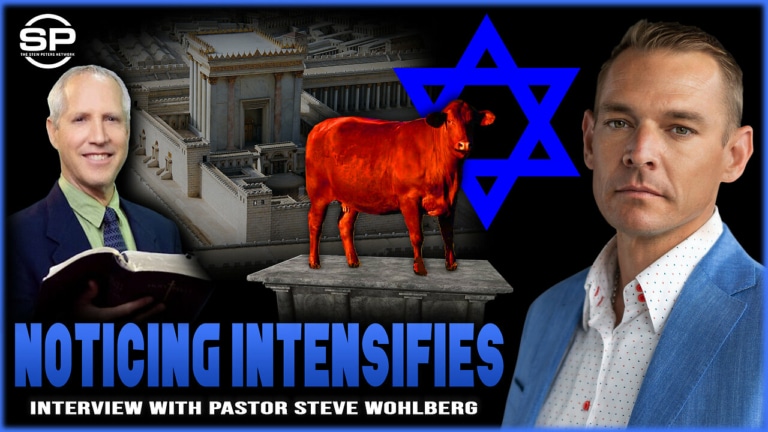The Church “in Rome” becomes the Roman Catholic Church: Before the Jewish Temple was destroyed in 70 A.D., a strong Christian church was planted through missionary efforts inside the city of Rome itself – in the heart of the Roman Empire. Paul wrote his letter, “The Epistle of Paul to the Romans,” to those early believers “in Rome.” Romans 1:7. But because it was surrounded by paganism inside the world’s mightiest capital, this church soon experienced a “falling away” (see 2 Thess. 2:3) from the purity of the gospel and metamorphed into the wealthy, politically savvy and powerful Roman Catholic Church. This transition especially took place during the time of the Emperor Constantine (4th century) who favored the Roman Catholic Church above all other Christian Churches.
Constantine, Catholicism, sun worship and Sunday: In 312 A.D., prior to his pivotal victory over his rival Maxentius at the Battle of Milvian Bridge, Constantine became a “Christian” after claiming to see in broad daylight a vision of “a cross above the sun” with these words emblazoned, “in hoc signo vinces” (by this sign conquer”). After defeating his enemies and becoming Emperor of Rome, Constantine presided in full royal pomp over the “First Council of Nicea” in 325 A.D.
A shrewd political genius, his scheme was to unite paganism and Christianity in an effort to strengthen his disintegrating empire. Constantine knew that pagans throughout the empire worshiped the sun on “the first day of the week,” and he discovered that many Christians – especially in Rome and Alexandria – also kept ‘Sunday’ because Christ rose from the dead on that day. So Constantine developed a plan to unite both groups on the common platform of Sunday-keeping. On March 7, 321 A.D., he passed his famous national Sunday law:
Let all judges and townspeople and occupations of all trades rest on the venerable day of the Sun [Sunday]; nevertheless, let those who are situated in the rural districts freely and with full liberty attend to the cultivation of the fields, because it so frequently happens that no other day may be so fitting for ploughing grains or trenching vineyards, lest at the time the advantage of the moment granted by the provision of heaven may be lost. The Code of Justinian , Book 3, title 12, law 3.
Now a professed Christian, Constantine nevertheless remained a devout sun worshipper. “The sun was universally celebrated as the invincible guide and protector of Constantine,” notes Edward Gibbon in his classic Decline and Fall of the Roman Empire, ch. xx, par. 3.Constantine even printed coins which “bore on the one side the letters of the name of Christ, on the other the figure of the sun god.” Arthur P. Stanley, History of the Eastern Church, lect. vi, par. 14. Again, Constantine’s promotion of Sunday observance was part of his definite strategy to combine paganism with Christianity: “The retention of the old pagan name of dies Solis, or ‘Sunday,’ for the weekly Christian festival, is in great measure owing to the union of pagan and Christian sentiment with which the first day of the week was recommended by Constantine to his subjects, pagan and Christian alike, as the ‘venerable day of the Sun.'” Stanley’s History of the Eastern Church , p. 184 (emphasis added).
“The Jewish, the Samaritan, even the Christian, were to be fused and recast into one great system, of which the sun was to be the central object of adoration.” Henry Milman, The History of Christianity, Book 2, chap. 8, Vol. 22, p. 175. In 330 A.D., Constantine moved his capital from Rome to Constantinople (modern Istanbul), thus preparing the way for the Roman Catholic Popes to reign in Rome as the successors of Constantine. As the Papal Church grew in power, it opposed Sabbath observance in favor of Sunday sacredness.
Many 5th-century Christians kept the Sabbath and Sunday: In spite of the rising popularity of Sunday sacredness, church historian Socrates Scholasticus (5th century) wrote: “For although almost all churches throughout the world celebrate the sacred mysteries [of the Lord’s Supper] on the Sabbath of every week, yet the Christians of Alexandria and at Rome, on account of some ancient tradition, have ceased to do this.” Socrates Scholasticus, Ecclesiastical History, Book 5, ch. 22. Another historian confirmed this, stating, “The people of Constantinople, and almost everywhere, assemble together on the Sabbath, as well as on the first day of the week, which custom is never observed at Rome or at Alexandria.” Sozomen, Ecclesiastical History, Book 7, ch. 19. Thus even in the 5th century, Sabbath-keeping was universally prevalent (except in Rome and Alexandria), along with Sunday-keeping. Many Christians kept both days. But as the centuries wore on, Sunday-keeping grew in prominence, especially within Roman Catholic territories. Today, the majority of Christians observe Sunday, but the question remains, What does the Bible say?
For more information, read Truth Left Behind by Steve Wohlberg, Sunday: The Origin of Its Observance in the Christian Church, by E.J. Wagonner, or watch the fascinating 5-part TV documentary, The Seventh-day: Revelations from the Lost Pages of History, produced by LLT Productions. All three are now available from White Horse Media. www.whitehorsemedia.com. 1-800-78-BIBLE.






